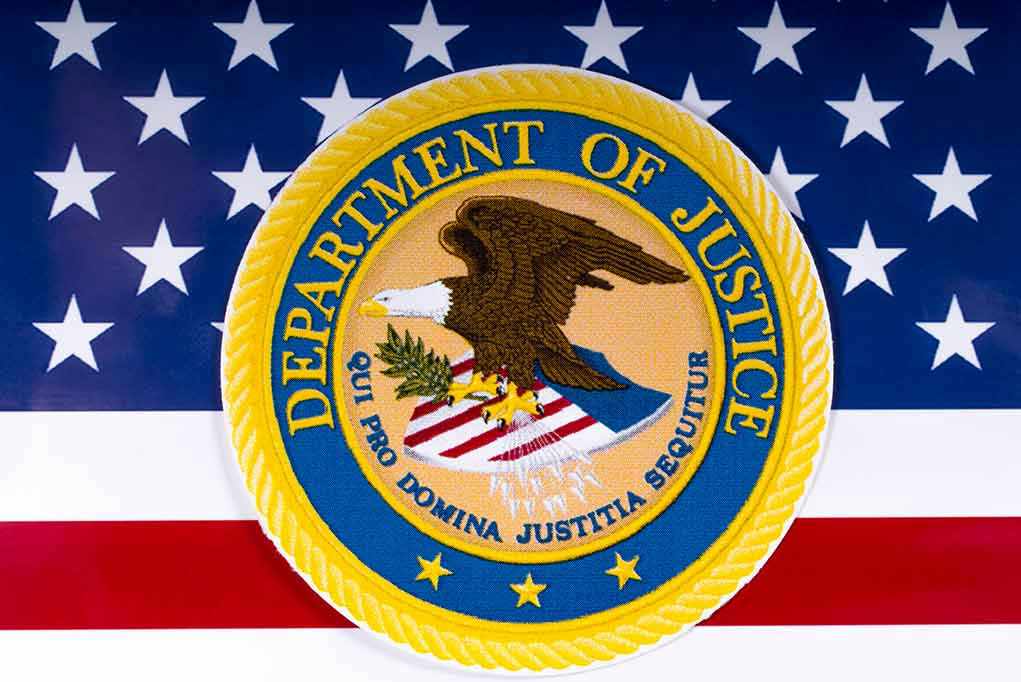
In a shocking turn of events, the Department of Justice swiftly ousted Desiree Leigh Grace, the court-appointed replacement for Alina Habba as U.S. Attorney for New Jersey, igniting a constitutional showdown.
At a Glance
- Federal judges appointed Desiree Leigh Grace as U.S. Attorney after Alina Habba’s term expired.
- The DOJ quickly terminated Grace’s appointment, causing a national stir.
- Tensions rise between judicial independence and executive authority.
- The incident underscores ongoing political friction over law enforcement appointments.
Judiciary vs. Executive: A Constitutional Clash
In a move rarely seen in the annals of U.S. legal history, the U.S. District Court for New Jersey exercised its seldom-used authority to appoint Desiree Leigh Grace as U.S. Attorney, following the expiration of Alina Habba’s interim term. The judges’ decision was a bold assertion of judicial power, designed to maintain continuity in the state’s federal prosecutions. However, the Trump administration, not one to shy away from asserting its influence, reacted swiftly through the Department of Justice, which promptly terminated Grace’s appointment.
Attorney General Pam Bondi and Deputy Attorney General Todd Blanche characterized the judiciary’s actions as an overreach of authority, a sentiment echoed by President Trump’s administration, which has consistently pushed to have loyalists in key prosecutorial positions. This episode has thrown into sharp relief the delicate balance of power between the judiciary’s statutory authority and the executive’s constitutional mandate to appoint U.S. Attorneys.
The Players in This Legal Drama
At the heart of this unfolding drama are several key figures. Desiree Leigh Grace, appointed by the judges, is a veteran federal prosecutor and was the first assistant under her predecessor, Alina Habba. Habba, a staunch Trump ally, was initially appointed as interim U.S. Attorney in March 2025, but her term ended without Senate confirmation.
Chief Judge Renée Bumb played a pivotal role by signing the order for Grace’s appointment. Meanwhile, the DOJ, led by Attorney General Pam Bondi, did not hold back in expressing its disapproval. Bondi’s swift action to dismiss Grace was a clear message that the administration intended to retain control over such critical appointments, dismissing the court’s move as “rogue.” The power dynamics here are as much about the individuals involved as they are about the institutions they represent.
Implications and Consequences
The immediate fallout is palpable. The New Jersey U.S. Attorney’s Office now faces uncertainty and potential disruption as the search for a Senate-confirmed appointee continues. This incident has opened up a can of worms regarding the statutory versus constitutional powers in appointing federal prosecutors, a discussion that may lead to legislative or judicial reviews.
The broader implications are equally significant. Political analysts suggest this could set a new precedent for clashes between the judiciary and executive branches over prosecutorial appointments. The situation could influence how other federal districts handle similar vacancies, potentially affecting public trust in federal law enforcement’s impartiality. The stakes are high, and the ripple effects of this confrontation may be felt across the entire judicial landscape for years to come.
Expert Opinions and the Road Ahead
Legal experts and scholars are divided. Some argue the judges acted within their rights under the statutory authority, while others see the DOJ’s assertive response as a necessary defense of executive prerogative. This case is a litmus test for the checks and balances that underpin our government system.
As the dust settles, the Trump administration’s handling of this episode will likely undergo intense scrutiny. The potential for politicizing prosecutorial appointments is a concern that resonates with many. However, for the administration, ensuring that key roles are filled with aligned individuals is paramount to driving its agenda forward.
Sources:
Court Names US Attorney in NJ; DOJ Calls Move Rogue
Pam Bondi Fires US Attorney Named by NJ Judges
Alina Habba Federal Prosecutor New Jersey Trump
Judges Decline to Keep Alina Habba as NJ Top Prosecutor











